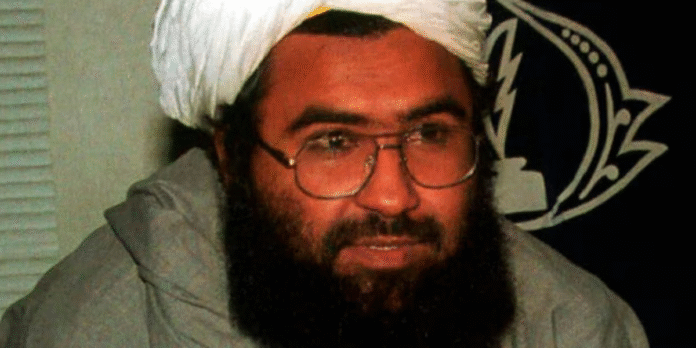Months after India carried out precision strikes on terror infrastructure in Pakistan under “Operation Sindoor,” a senior Jaish-e-Mohammed (JeM) commander has admitted that the family of the outfit’s founder, Masood Azhar, was among those killed in the Bahawalpur offensive. The acknowledgement, now circulating in a viral video, marks one of the rare occasions when the group itself has conceded the scale of its losses.
The video, shared online and flagged by BJP IT cell head Amit Malviya, shows JeM commander Masood Ilyas Kashmiri addressing an armed gathering. Flanked by gunmen, he admits that the Indian strikes inflicted severe damage on the group’s leadership and family members. Kashmiri is heard saying that on May 7, during the strikes in Bahawalpur, Azhar’s family, including women and children, were “torn to shreds.”
The admission comes in the wake of the Pahalgam terror attack, which killed 26 people and prompted India to launch retaliatory strikes against high-value targets linked to JeM and Lashkar-e-Taiba (LeT) in Pakistan and Pakistan-occupied Kashmir. The Pakistani government later confirmed that nine sites had been struck, including Bahawalpur, Kotli, and Muridke, long considered strongholds of terror outfits.
Bahawalpur, Pakistan’s 12th largest city, has served as a central hub for JeM. It houses the Jamia Masjid Subhan Allah, also known as the Usman-o-Ali campus, which has been described as the group’s headquarters. Reports from Pakistani media following the strikes indicated that Azhar himself admitted to losing ten family members during the offensive.
Founded in the early 2000s after Masood Azhar’s call for jihad in Kashmir, JeM has been responsible for multiple attacks on Indian soil. Indian security forces have repeatedly identified its Bahawalpur base as a nerve centre for operations. Operation Sindoor, launched in response to escalating terror threats, was specifically aimed at dismantling such bases.
The aftermath of the strikes has left JeM reeling. According to intelligence assessments, the group suffered heavier losses than LeT during Operation Sindoor. The morale of JeM cadres is described as extremely low, with Pakistani authorities now focused on protecting its top leadership. Masood Azhar has reportedly been shifted between multiple safe houses since the offensive, including a ten-day stay in Rawalpindi. Pakistan’s former foreign minister, Bilawal Bhutto, even claimed that Azhar had been moved to Afghanistan at one stage.
For security reasons, JeM has avoided rebuilding its Bahawalpur headquarters. Instead, the outfit is said to be seeking a new base closer to Pakistan Army installations to reduce vulnerability to further strikes. Intelligence sources suggest that both Azhar and LeT chief Hafiz Saeed have been placed under tight security by Pakistan’s establishment, which has also been assisting the groups in gradually rebuilding their operational capacity.
The revelation in the viral video also underscores the scale of damage inflicted on JeM’s leadership hierarchy. Kashmiri’s speech reflects the group’s narrative of sacrifice for ideological reasons, but his acknowledgement of family losses highlights the devastating human cost borne by Azhar’s inner circle. Security experts note that such admissions are rare, as terror groups usually avoid public confirmation of setbacks.
India’s operations, including the more recent “Operation Mahadev,” have kept the pressure on both JeM and LeT. With Indian agencies closely monitoring Azhar’s movements, the JeM chief has been unable to make public appearances. His reduced visibility and the destruction of his stronghold have, analysts suggest, weakened his standing within the network.
As Pakistan continues to balance international scrutiny with its support for such outfits, the latest revelations further complicate its position. For India, the admissions serve as a validation of the scale and success of its targeted counter-terror operations.





